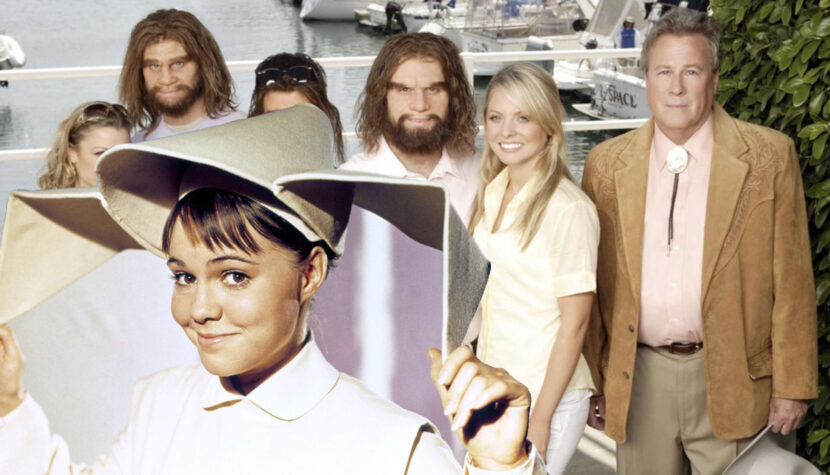TV SERIES that insult the viewer’s intelligence

I’ve already written about many failed productions in the world of TV series. They were characterized by low technical quality combined with terrible plot ideas and atrocious acting. Overall, everything fell short, including any attempts to surprise the viewer, who was treated as a half-wit if it was assumed they could be fooled. There are still a few productions so absurd that it’s worth saying something about them, so viewers don’t waste their time with these titles.
“The Kardashians”, 2022

It’s not really a series, but I decided to start with it because among entertainment programs that have some semblance of a plot, it’s an important one. I’m not talking about its epistemological value but rather its ability to dumb down people and detach them from rationality and reality, depicting human issues. It’s also a painful example of how the media world is deceptive, how one can be promoted in it without anything interesting to say or create, merely being a literal product of advertising. And imagine, “The Kardashians” is a continuation of the reality show “Keeping Up with the Kardashians,” which had 20 seasons.
“Cavemen”, 2007

Imagine cavemen living among us, and the experiment is to socialize them into modern society. Their appearance, behavior, and the whole idea are so obscene that the series belongs on the list of worst-ever and totally unfunny shows. Interestingly, the cavemen were dressed in elegant clothes, but shaving and haircutting were problematic. Isn’t humanization about starting with appearance? In reality, cavemen represent another ethnic minority in the modern world, facing prejudices from Homo sapiens. Although these cavemen identify themselves as Cro-Magnons, their facial features and anatomy resemble Neanderthals. Another insult to the viewer’s intelligence and our species’ history?
“Homeboys in Outer Space”, 1996–1997

Quality, quality, and quality again. The series follows the adventures of two quirky astronauts, Tyberius Walker and Morris Clay, flying around the universe in a winged car called the “Space Hoopty,” piloted by a feminine computer named Loquatia. Perhaps some jokes could pass, but aesthetically, the series looks tragic. Space could have been created with painted backgrounds and actors fooling around on it.
“The Flying Nun”, 1967–1970

Not only a nun, but one with a special power—flying. It could have been healing, walking on water, telekinesis, but it’s flying. Where did this idea come from? Who knows. Importantly, it was considered one of the silliest in cinema history, and Sally Field had to prove herself capable of better roles for a long time. Unfortunately, her career saw many more missteps, but the flying nun is one of the biggest. Sister Bertrille was genuinely a good soul. People could rely on her, and her skill of catching the wind in her cornet helped many. Interestingly, the cornet was modeled after those worn by the Sisters of Mercy until the mid-60s, although it was never mentioned that Sister Bertrille belonged to that order. Allegedly, she was very light, hence the wind lifting her. In one episode, she even tried to gain weight to stay grounded.
“Accidental Family”, 1965–1966

Roughly in the style and level of “The Flying Nun.” In this case, it’s the story of a lawyer who buys a vintage car and discovers his deceased mother can communicate with him through the car’s radio. There’s also a villain who wants to take the car or maybe the mother, specifically the radio with the mother. Everything is served very literally to ensure the viewer doesn’t miss anything. And the title already had to explain everything. So, there won’t be any surprises when the mother speaks through the car radio.
“Mr. Smith”, 1983

Perhaps there are fans of a man dressed as an orangutan with an intelligence quotient over 200, but this inter-species transformation is so improbable and atavistically unpleasant that it’s generally challenging to watch this series. Interestingly, some scenes were filmed with a real monkey, which deepens the discomfort. Its voice, movements—literally everything—is so artificial that it’s hard to believe someone could conceive such a dramatically poorly executed idea. One episode is entirely sufficient.

